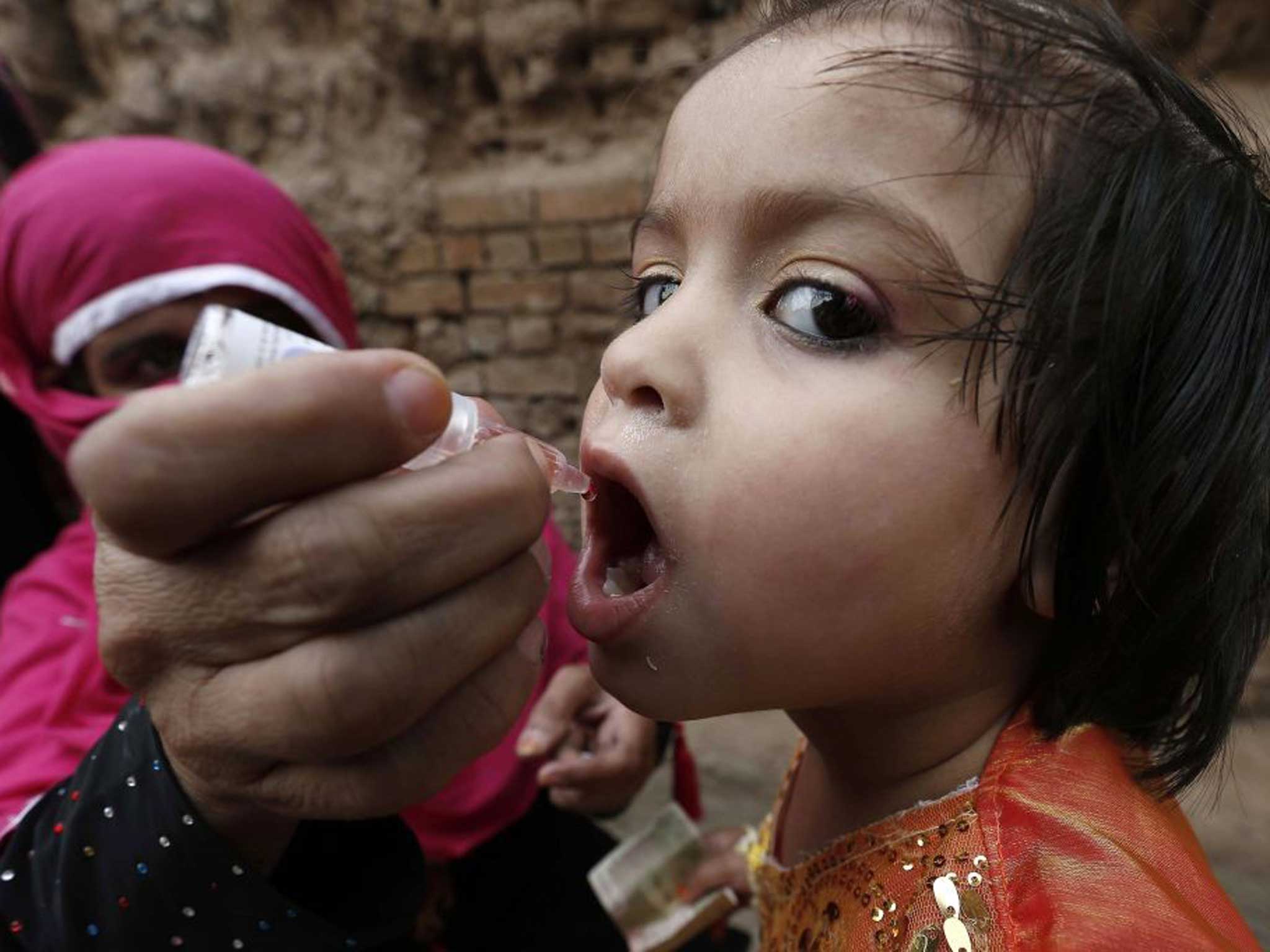Britain to give £100m to help the battle against polio, International Development Minister announces
Outbreaks in Syria and East Africa threaten to reverse decades of progress in eradicating the disease

Your support helps us to tell the story
From reproductive rights to climate change to Big Tech, The Independent is on the ground when the story is developing. Whether it's investigating the financials of Elon Musk's pro-Trump PAC or producing our latest documentary, 'The A Word', which shines a light on the American women fighting for reproductive rights, we know how important it is to parse out the facts from the messaging.
At such a critical moment in US history, we need reporters on the ground. Your donation allows us to keep sending journalists to speak to both sides of the story.
The Independent is trusted by Americans across the entire political spectrum. And unlike many other quality news outlets, we choose not to lock Americans out of our reporting and analysis with paywalls. We believe quality journalism should be available to everyone, paid for by those who can afford it.
Your support makes all the difference.Britain will give £100m to help eradicate polio, Justine Greening, International Development Minister told a conference yesterday.
Polio outbreaks in Syria and East Africa threaten to reverse decades of progress in eradicating the disease, Ms Greening told International Rotarians in Milton Keynes, Buckinghamshire.
The International Development Secretary announced the release of £100 million to help the drive to eradicate polio. This forms part of the UK’s £300 million pledge to help vaccinate up to 360 million children by 2018.
The announcement comes as numbers of recorded polio cases have risen. Since 1988, the number of countries in which polio is endemic has dropped from 125 to just three: Afghanistan, Pakistan and Nigeria. Last year, there were just 223 reported cases globally. However this year, Somalia recorded its first cases of polio since 2007. Cases were also reported in neighbouring countries like Kenya and Ethiopia. Last month, the first outbreak of polio in Syria in 14 years was confirmed.
The respect medical journal the Lancet reported recently that Europe could be at risk from polio following a recent outbreak in Syria. Two doctors in Germany say the cases in Syria - which had been free of wild poliovirus since 1999 - could endanger nearby regions. A huge vaccination campaign against polio has been launched by the United Nations in the Middle East after the disease re-emerged in Syria.
The British money will help fund a huge vaccination campaign against polio launched by the United Nations in the Middle East after the disease re-emerged in Syria. The UN says it aims to immunise more than 20 million children in several countries over six months.
Justine Greening said: “In 1988, there were 350,000 new cases of polio reported across the globe. Last year there were 223. Thanks to global efforts to tackle this disease, including the vital work of Rotary International, we are within reach of finally consigning polio to the history books.
“Yet new cases in Syria and East Africa threaten to reverse decades of progress. Now is the time to step up efforts to finally rid the world of polio. This should not be limited to one country or one organisation. Everyone has a part to play.”
Gary Huang, President-elect of Rotary International, said: “Thanks in great part to the support of the United Kingdom, the world is on the verge of defeating polio once and for all. The world must remain vigilant, united in the effort to ensure that no child will have to suffer the crippling effects of polio. The recent outbreaks in the Horn of Africa and Syria are stark reminders of how dangerous the wild polio virus is. The world must remain firmly united in the effort to conquer polio where it persists.”
Join our commenting forum
Join thought-provoking conversations, follow other Independent readers and see their replies
Comments